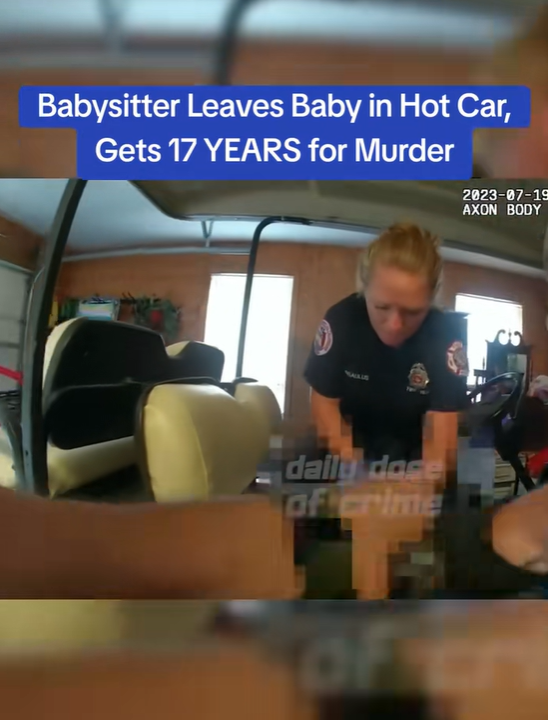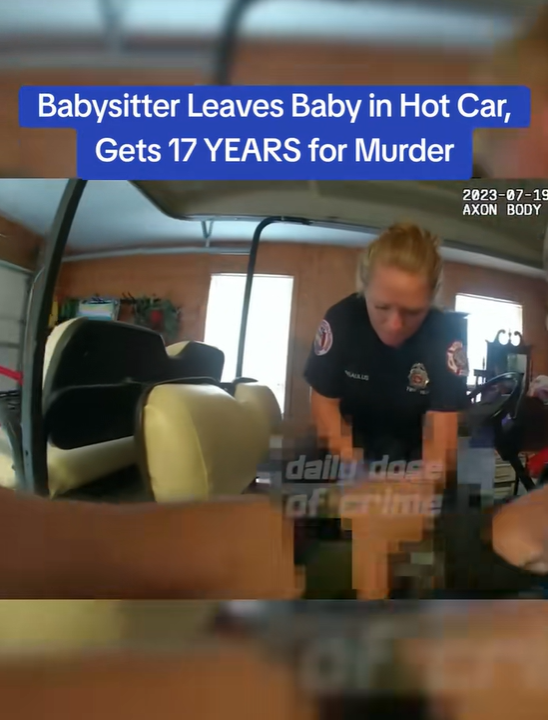It was supposed to be just another ordinary summer afternoon. Twenty-two-year-old Lena Morris was babysitting 1-year-old Noah Peterson, a joyful little boy with bright blue eyes and a laugh that filled every room. His parents trusted Lena — she’d been their regular babysitter for months, known for being responsible and kind.
But on that blistering July day, everything went horribly wrong.
Lena was running late for her shift at a local coffee shop. She strapped Noah into the backseat of her car, intending to drop him off at daycare before heading to work. But in the chaos of the morning rush, she stopped at the coffee shop “just for a minute” — to clock in, she said — and forgot the baby in the back seat.
That “minute” turned into seven hours.
When she finally returned to her car after her shift ended, temperatures inside had soared to over 130 degrees Fahrenheit (54°C). Witnesses said they heard a blood-curdling scream as Lena opened the car door and found little Noah unresponsive in his seat.
Paramedics rushed to the scene, but it was far too late. The baby was declared dead at the hospital from heatstroke and dehydration.
The tragedy shook the small town of Clarksville, Tennessee, to its core. For weeks, people gathered outside the courthouse holding photos of Noah, demanding justice.
At first, prosecutors considered charging Lena with negligent homicide, but as more evidence surfaced — including text messages showing she had knowingly left the child in the car while messaging friends about her “crazy day” — the charges were upgraded to second-degree murder.
During the trial, the jury was shown surveillance footage from the parking lot, capturing Lena walking past her car several times throughout the day — the same car where Noah sat fighting for his life.
Lena broke down on the stand, saying she “didn’t mean to hurt him” and “thought someone else had picked him up.” But prosecutors argued her carelessness went beyond a mistake — it was a reckless disregard for a child’s life.
After two days of deliberation, the jury found her guilty.
When the judge handed down a 17-year prison sentence, there wasn’t a dry eye in the courtroom. Noah’s parents sobbed as they spoke about their only child — how his laughter filled their home, and how silence had taken its place.

In her final statement, Lena said softly through tears,
“I wish I could trade places with him. I live every day knowing I ended a life I was trusted to protect.”
The tragedy has reignited national debates about hot car deaths, child safety awareness, and criminal accountability.
Even now, a small memorial sits in that parking lot — a white cross, a teddy bear, and a note that reads:
“You were loved more than you’ll ever know, Noah.”
